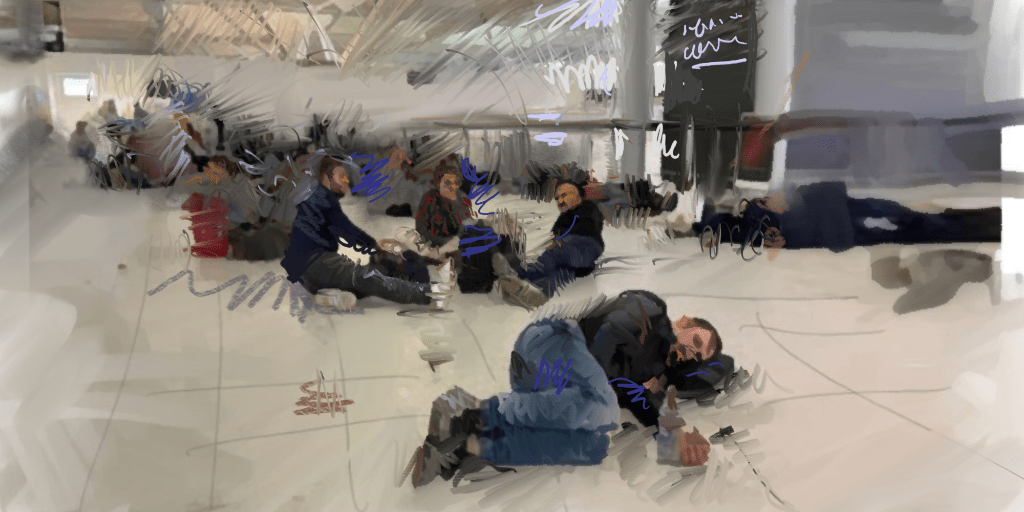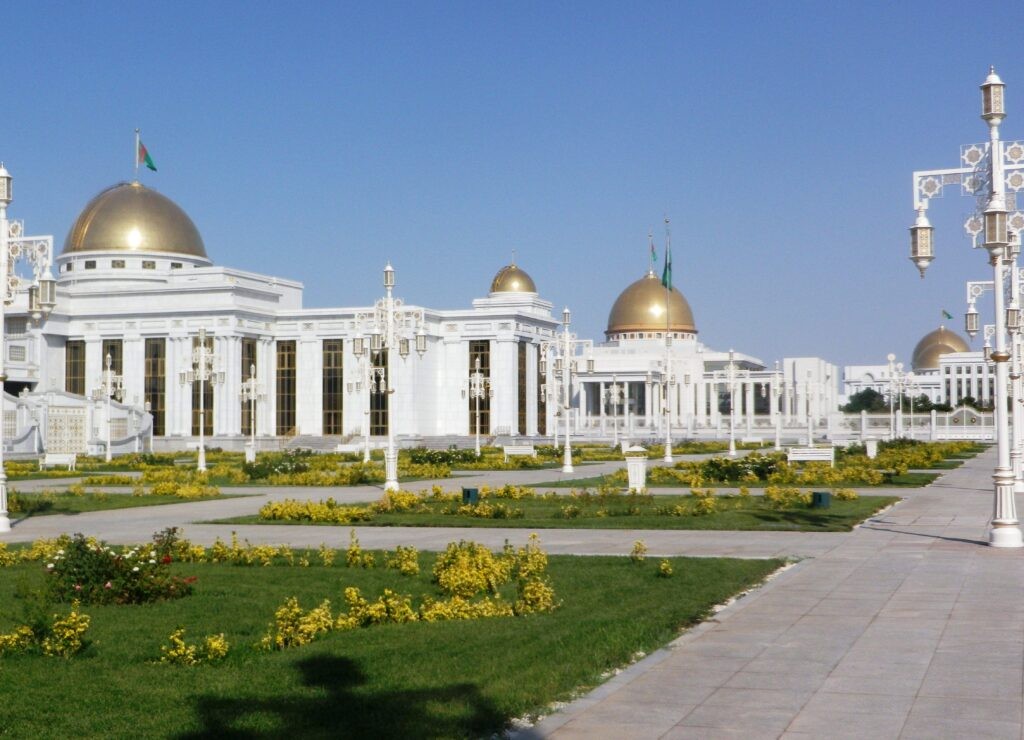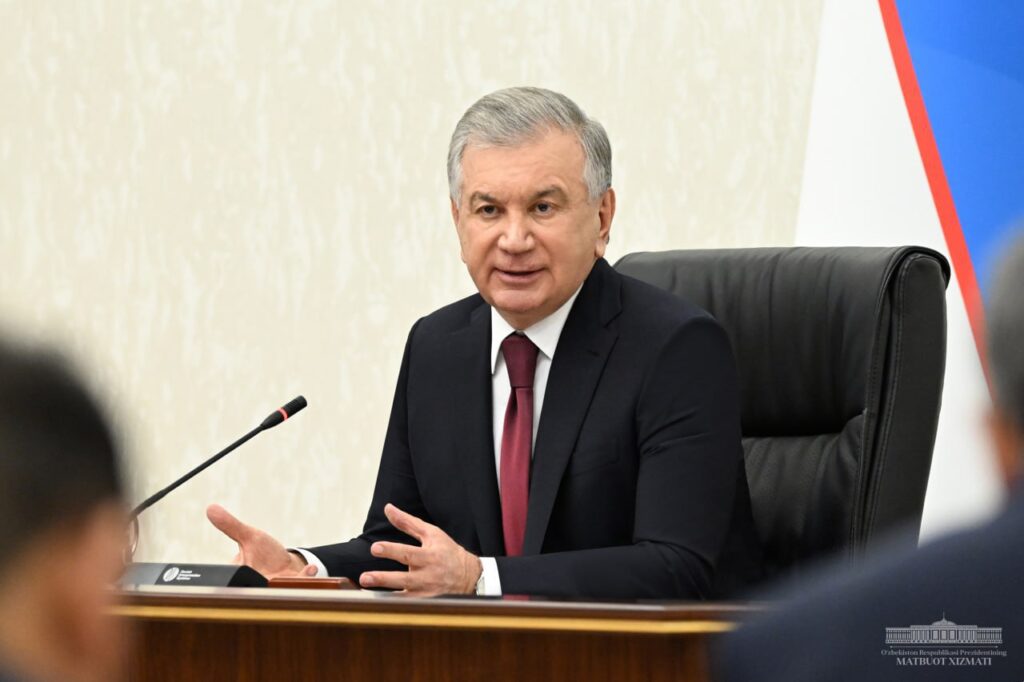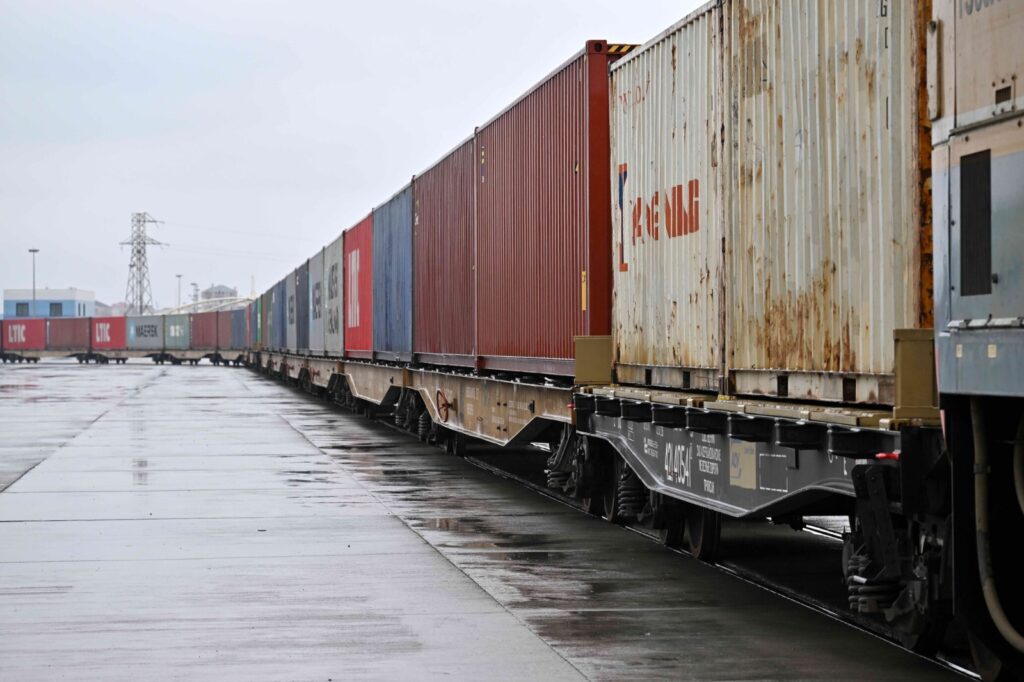By Robert M. Cutler
A series of ongoing political consultations between Turkmenistan and Türkiye continued on 25–26 April, as a Turkmen delegation led by Deputy Minister of Foreign Affairs Ahmet Gurbanov visited Ankara, hosted by Turkish counterpart Burak Akçapar.
Beyond the regular bilateral agenda of political-diplomatic, trade-economic and cultural-humanitarian cooperation, the two sides emphasized the implementation of bilateral agreements reached at the third Antalya Diplomatic Forum in early March, particularly the prospects for cooperation in the energy sector. On 1 March 2024, Turkmenistan and Türkiye signed two documents — a memorandum of understanding (MoU) and a letter of intent — aimed at strengthening cooperation in the natural gas sector. In theory, this seems to be a positive development for the two countries as well as for Europe. The two possible routes for Turkmen gas to reach Türkiye and Europe are (1) via the Caspian Sea and Azerbaijan, and (2) through Iran’s existing pipeline infrastructure via a gas swap agreement. Neither one is likely to happen soon.
The project to export Turkmen gas to Europe through a shore-to-shore high volume pipeline, at 31 billion cubic meters per year (bcm/y) is no longer alive after various parties have failed to realize it over the past quarter-century. It was bruited when it was announced that Turkmen President Serdar Berdimuhamedov planned to visit Brussels in late 2023 (which ended up not happening) and definitively killed when the initiative by American company Trans-Caspian Resources (headed by a retired U.S. ambassador to Turkmenistan) failed to persuade Ashgabat to construct short low-volume (8–11 bcm/y) “Platform Option” pipeline in the Caspian Sea.
Gas “swaps” and Türkiye’s ambitions
The idea of a “Turkish gas hub” arose from Russia’s search to depoliticize trade between Gazprom and European firms by facilitating a platform where Gazprom’s origination of the gas would be obscured and anonymized. Buyers and sellers could meet through Turkish intermediation. Türkiye, however, seeks to draw advantage by imposing the condition of long-term contracts with Gazprom for gas sales at below-market prices. This would guarantee a role for the Turkish intermediaries and, moreover, ensure for them a profit margin through mandatory service fees.
“Swap” operations mean an exchange of gas amongst Turkmenistan, Iran and Azerbaijan; however, this would involve only a few billion cubic meters. Even if all participants agree, several questions still remain: Will swap transactions be profitable, given the price of gas in Europe? Even if Iran agreed to a Turkmen gas swap, would Tehran execute the agreement in good faith? In fact, Tehran would prefer to offer its own gas to Turkish and European markets, rather than transit competitive Turkmen gas through his territory.
In addition, the gas that Azerbaijan produces for export already has contracted buyers under long-term agreements. Azerbaijan would be interested in the Turkish gas hub only if it should in future produce surpluses of gas that cannot be sold under long-term contracts. Then, such surpluses could be sold at a gas hub under short-term contracts, assuming that transit and profitability are guaranteed.
Challenges to Türkiye’s gas hub plans
Building a successful gas hub requires careful planning, coordination amongst various stakeholders, and adherence to best practices in infrastructure development, market regulation and operations. It is also important to distinguish between physical and virtual gas hubs.
A physical gas hub is centered on a specific location with physical infrastructure for the storage, trading and transmission of natural gas. A virtual gas hub operates in a significantly different manner, without the need for such centralized physical infrastructure. Virtual gas hubs focus on the financial and contractual aspects of gas trading. They are a flexible and efficient evolution of industrial and market practices. Whereas a physical hub requires substantial investment in physical assets like pipelines, storage facilities and LNG terminals, a virtual hub leans on existing infrastructure and the digital marketplace.
Creating a genuine gas hub in Türkiye — whether physical or virtual — would require attracting more participants. That, in turn, would require significantly greater investments in information technology and cybersecurity. These two desiderata could be achievable with focused efforts and market reforms. Three additional requirements, however, appear to be more challenging.
Firstly, the country’s regulatory framework would need liberalization and pricing transparency. The necessary policy reforms here would be significant. Especially for a virtual hub, Türkiye would need a fully liberalized and competitive gas market that ensures transparent and non-discriminatory access to its gas infrastructure. Progress has been made in this direction, but further reforms are necessary to align with the best practices implemented in established hubs, not least through the streamlining of permits.
Secondly, it would also be necessary to develop more-sophisticated financial instruments for gas trading. It is not clear that the country’s domestic financial, banking and insurance regimes are well enough coordinated and expertly balanced for this to be possible. Investment in information technology and trading platforms is crucial. Türkiye does not at present have the technical and financial infrastructure to support extensive gas trading mechanisms, particularly risk-management tools.
Finally, and most problematically, although Türkiye’s pipeline network is connected with the European network, the creation of a genuine gas hub would require their deeper and more extensive integration. Accomplishing this is complicated by third-party factors beyond Türkiye’s control as well as the need for substantial investments.
For the time being, plans for gas cooperation between Turkmenistan and Türkiye, with overarching implications for Central Asia and Europe, will continue to remain as ambitious prospects.
Robert M. Cutler has written and consulted on Central Asian affairs for over 30 years at all levels. He was a founding member of the Central Eurasian Studies Society’s executive board and founding editor of its Perspectives publication. He has written for Asia Times, Foreign Policy Magazine, The National Interest, Euractiv, Radio Free Europe, National Post (Toronto), FSU Oil & Gas Monitor, and many other outlets. He directs the NATO Association of Canada’s Energy Security Program, where he is also senior fellow, and is a practitioner member at the University of Waterloo’s Institute for Complexity and Innovation. Educated at MIT, the Graduate Institute of International Studies (Geneva), and the University of Michigan, he was for many years a senior researcher at Carleton University’s Institute of European, Russian, and Eurasian Studies, and is past chairman of the Montreal Press Club’s Board of Directors.








